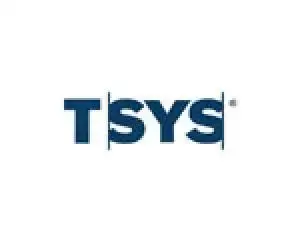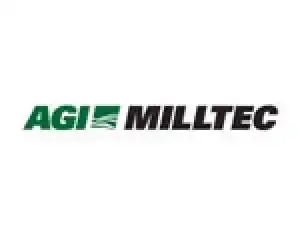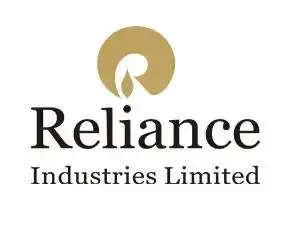
Get a Quote
Get a Quote and Find Services to Fit Your Needs 50000+ Satisfied Clients
5000+ Licenses & Registration
15 Branches across India
75 Years + Combined experience
Satisfied Clients
Services
Years Combined Experience
Get Started!

























Nowadays, e-commerce is prevalent for all kinds of products and services. To ensure that the same goes for insurance services, the Insurance Regulatory Development Authority of India (IRDAI) introduced guidelines for Insurance Self-Network Platform registration in March, 2017. By obtaining ISNP Certification from the insurance industry regulator, businesses launch an e-commerce platform for selling insurance products and services.
An Insurance Self Network Platform (ISNP) is a type of an e-commerce platform which primarily deals with insurance services in India. This platform can be a website, a mobile app, or a combination of both. By using ISNP, insurance brokers and firms can sell their policies in a cost efficient manner and have better reach.
If you want to run your own ISNP portal dedicated specifically to selling insurance policies, then you must mandatorily apply for ISNP License registration with IRDAI.
Insurance Self-Network Platforms (ISNPs) are an effective medium to increase insurance penetration and enhance financial inclusion cost-effectively. Hence, the Authority, as part of its developmental mandate, issued insurance Self-Network Platform (ISNP) guidelines in 2017 to promote e-commerce in the insurance space, which has lowered the cost of transacting insurance business and brought higher efficiencies and greater reach.
A registered ISNP can dispense the following services in an Insurance market:
Issue Insurance Policy documents or certificates to the consumers.
Assignment registration
Nominations enlistment
Nomination updations
Manage insurance surrender, maturity, withdrawals, free-look cancellations, and return benefits.
Payouts
Organizing medical check-ups and submitting medical reports to the insurer in case of medical or life insurance.
Issue insurance products endorsement
Providing loans against insurance policies
Fund Switching
Updating Terms and Conditions of an Insurance policy
Intimating changes in the Terms and Conditions of an Insurance policy to the policyholders.
Collecting renewed premiums and issuing remittances to the insurer(s)
Periodically updating customers' information.
Declaration of Updates
Extension of an insurance cover
Review or cancel an insurance policy like
Insurance Policy Transfer
Duplicate Insurance Policy
Death and Maturity Claims
Any other service relating to insurance products and services.
Every ISNP registration applicant must timely file their annual ISNP compliance as per the ISNP Guidelines. We have explained some of ISNP compliance in the following paragraphs:
A registered ISNP must ensure:
that the integrity of the automatic data processing systems is maintained at all times.
Privacy of data is maintained for both insurance companies and consumers.
Adequate internal mechanisms for reviewing, monitoring, and evaluating its controls, systems and procedures.
A registered ISNP must delegate the review of controls, systems, procedures, and safeguards at least once a year to an external Certified Information System Auditor (CISA) or Chartered Accountants with DISA (lCAl) qualification or CERT-IN expert at their cost. The scope of such an external audit of the ISNP must be as prescribed by the Authority from time to time.
A registered ISNP must comply with the Information Security Management System Standards of the ISO (International Organization for Standardization) or the IETC (International Electro-Technical Commission) or its equivalent of the ISNP, at all times, by having an annual review of the systems.
The applicant shall place the report of the CISA auditor or DISA (ICAI) qualified expert or CERT-IN expert and the information security management system of the ISNP before the Board or its sub-committee for their observations.
Any adverse findings which are material to the operations of the ISNP of the applicant or which result in financial loss to the policyholders shall be reported to the Authority along with an action plan to address them.
The Authority has the right to undertake by itself or through an external agency an independent inspection into the affairs of a registered ISNP at any time if it so desires. But it must notify the ISNP beforehand by issuing a notice. The Authority must also specify in the notice the documents to be furnished by the ISNP, which would be useful during the inspection.
If any business entity wants to become an Insurance Self-Network Platform, it must satisfy the following conditions based on the ISNP guidelines IRDA, before filing for the ISNP registration application. These regulations also inform of the role of the Authority in verifying someone's application and granting them the IRDA ISNP license.
The applicant must be an incorporated company or a registered Limited Liability Partnership.
The applicant business entity must appoint a principal officer to oversee its Insurance Self-Network Platform business.
The applicant must conform to all the guidelines mentioned in the form ISNP-1.
The applicant must prove that the e-commerce portal can automate the process and maintain data privacy.
The applicant must not commence any activity related to insurance e-commerce without formally registering the ISNP after obtaining permission from the Authority.
The applicant must pay the ISNP license processing fee.
Existing ISNPs who have already set up their insurance portals for selling and servicing insurance products must continue to operate these portals.
To start an e-commerce website dedicated to selling insurance policies, you must attach the following documents to the ISNP registration application form:
Certificate of Incorporation
Memorandum of Association
Articles of Association
Details of the directors and shareholders
A document containing the description of the business
Details of the management personnel
Details of steps taken to prevent unauthorized access
Details of procedure implemented for disaster recovery
Details of the encryption implemented to safeguard customer information
Details of the Information Security management system
Source code of the e-commerce portal
CERT-in certification of the E-commerce portal
The process for IRDA ISNP registration takes place in the following manner:
To obtain prior permission for setting up an ISNP, the applicant needs to file an application in form ISNP-1. Along with the application, the necessary documents and prescribed fee must be submitted.
After the application form has been submitted, IRDAI might ask for additional details or clarification regarding the details provided.
If the application is found to be incomplete or not aligned with the registration guidelines, the authority can reject the application. However, the applicant will be given the opportunity to be heard.
IRDAI will issue a notice for application if it is incomplete. After the notice has been received, the application must be completed by the applicant within 15 days from the date of submission.
If the application satisfies all the provisions and regulations of the Insurance Act, 1938, the IRDAI Act, 1999, and the authority is convinced after due analysis, the registration will be granted within 60 days of application filing.
NOTE: The Authority may revoke the ISNP license granted at any time if it is of the view that the activities carried out on the ISNP is:
Not in the interest of the policyholders,
Not conducive to the orderly growth of the industry,
Violating the code of conduct issued by the Authority,
Not meeting the requirements as specified in the IRDA guidelines, or
Violate the provisions of the
Insurance Act of 1938,
IRDA Act of 1999,
lnsurance rules, regulations, guidelines, circulars, orders, notices, etc., issued by the Authority.
In any case, the ISNP must be given an opportunity of being heard by the Authority.
When you take on the task of obtaining the ISNP registration, you'll realize that filing the application is merely the tip of the iceberg. There is a lot more depth to the process, and there are several nuances to it that can increase the time it takes to get the registration.
Therefore, you should find consultants that can expedite the process for you. Registrationwala is one of those consultants. We can provide you services like:
Document drafting
Application filing
Department follow up
So, if you're in a hurry to start your own insurance e-commerce portal, reach out to Registrationwala.
Related Services
Insurance Broker License | Surveyor & Loss Assessor License | Corporate Agent License
Q1. What is the full form of an ISNP?
A. The ISNP stands for Insurance Self-Network Platform.
Q2. What is an ISNP?
A. It is an e-commerce portal dedicated to dealing with insurance services in India.
Q3. What is the purpose of setting up an ISNP?
A. Insurance Self-Network Platforms are an effective medium to increase insurance penetration and enhance financial inclusion in a cost-effective manner.
Q4. What is the similarity between an ISNP and an Insurance web aggregator?
A. Both ISNP and an insurance web aggregator provide an interface to sell insurance products online.
Q5. Who is eligible to become an ISNP?
A. Any business entity which is an insurance intermediary, agency, or insurance company can start its own Insurance Self-Network Platform.
Q6. For how long is an ISNP certificate valid?
A. It remains valid for as long as the certificate of registration remains valid in case of insurance intermediaries.
Q7. What is the application fee for ISNP certification?
A. The license processing fee to register a firm as an Insurance Self-Network Platform is ten thousand rupees plus any applicable taxes. This fee is non-refundable.
Corporate Agent License | Insurance Broker License | Surveyor & Loss Assessor License
Corporate Agent License | Insurance Broker License | Surveyor & Loss Assessor License

★ ★ ★ ★ ★
I very much appreciate the fact that you guys possess tremendous knowhow of private limited company incorporation. You have exhibited professional and respectful manner towards my query and I would seriously recommend you guys to all the folks looking for outstanding business services.

★ ★ ★ ★ ★
Thanks to their support, I got my trademark successfully. I highly recommend their services for anyone needing help with their intellectual property. The person assigned to me was very cooperative and helpful.

★ ★ ★ ★ ★
Thanks to their support ragistrationwala team, I got my IP-1 license successfully and special thanks to Miss.Kanishka for your great and timing support !!!!!! I have archived my goal one step forward... Thanks for the entire team....

★ ★ ★ ★ ★
Really helped a lot in getting my both VNO licenses. Great experience working with the team and very humble team, thanks for providing the vno license on time.

★ ★ ★ ★ ★
I had a good time working with Registrationwala. Good team. I would recommend their services to others.

★ ★ ★ ★ ★
It was extremely great service of Registrationwala consulting firm, and this firm is providing the best services and worry about the client's required services along the client's satisfaction.

★ ★ ★ ★ ★
Superb Experince! Within no time the trademark registration was on.Highly professional team. I am very much Impressed with the prompt response and efficiency.Thank you.

★ ★ ★ ★ ★
We had taken ISP license from registration wala and the supporting person is very helpful to taken that license his communication and his work is satisfactory and thanks for those services

★ ★ ★ ★ ★
I sincerely appreciate your prompt support in helping me get the access license so quickly. Your professionalism and efficiency are truly commendable. Thank you for going above and beyond to assist me. Keep up the great work!